Election 2022: A damaging character contest
The election campaign, already built on personal denigration and character assassination, will be the most personalised and nasty contest in living memory, fed by public frustration, anger and fear.
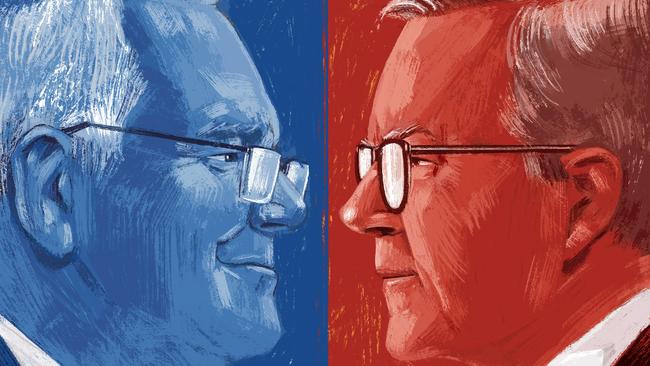
But “too little, too late” from Anthony Albanese’s small-target strategy on policy and developing a clear picture of his own character and convictions has the potential to be an equally damaging drag on Labor’s vote.
Voters’ judgments on the leaders’ character and experience are going to be the most important for any election in decades, with more emphasis on leadership because of a fragmentation of traditional party support.
Fractious independent movements and minor parties have arisen from the pandemic dislocation, and there is so little real policy differentiation between the Coalition and Labor that distinctions between the leaders have become the focus.
This also means the election campaign, already built on personal denigration and character assassination, will be the most personalised and nasty contest in living memory, fed by public frustration, anger and fear.
It also means, at this stage, whoever wins will have a marred mandate built on negativity and devoid of a policy agenda.
Since his “I don’t hold a hose” comment when asked about his Hawaiian holiday during the Black Summer bushfires of 2019, Morrison has been negatively branded by the Opposition Leader and Labor. Albanese went negative hard and early on Morrison, using every opportunity, error and criticism to attack and undermine the Prime Minister’s character, truthfulness, convictions and trustworthiness.
Labor’s attack, repeated daily in talking points by every ALP MP who could get a public airing, was that Morrison was arrogant, uncaring, untruthful, interested only in his own job and re-election; he was on the scene of disasters “for the photo op, not the follow-up”; he failed on Covid-19 quarantine and vaccination; he didn’t do enough for job support; he was divisive; he was at war with the premiers; and, when Morrison did act, it was “too little, too late”.
Some of the criticisms were valid and targeted errors or hesitancy, and used ample examples of criticism from within the Liberal Party or spectacular interventions such as French President Emmanuel Macron’s declaration that he “knew” Morrison had lied to him over the cancellation of the French submarine contract.
Some of the attacks were unfair and ill-founded, but that didn’t make them less effective, and Morrison struggled for an opportunity to project the positive messages the Coalition did have amid an atmosphere of daily media distractions and campaigns on identity politics.
The fracturing of the conservative vote over a climate change policy of net-zero carbon emissions by 2050, enormous job support payments and frustration over pandemic border closures and lockdowns fed the disillusion and dissent. Polling pointed to a Coalition election wipe-out as the Liberal Party was all but extinguished in the West Australian state election, removed from government in South Australia after one term and soundly defeated in Queensland, the Northern Territory and the ACT.
During this political decline, Morrison fended off advice to “go negative” against Albanese, who was a frontrunner under no pressure and to criticise state and territory leaders. Morrison wanted to remain positive and optimistic while working with the premiers in the national cabinet created to manage the worst pandemic in 100 years.
But, in February, with only nine sitting days left in the 46th parliament, Morrison declared he “absolutely” knew how to win the election and moved from the defensive to the offensive.
Morrison accused Albanese of “misrepresenting the facts” on the government’s Covid response and demanded the Opposition Leader “stop trying to politicise the pandemic” with his “snarling and growling”.
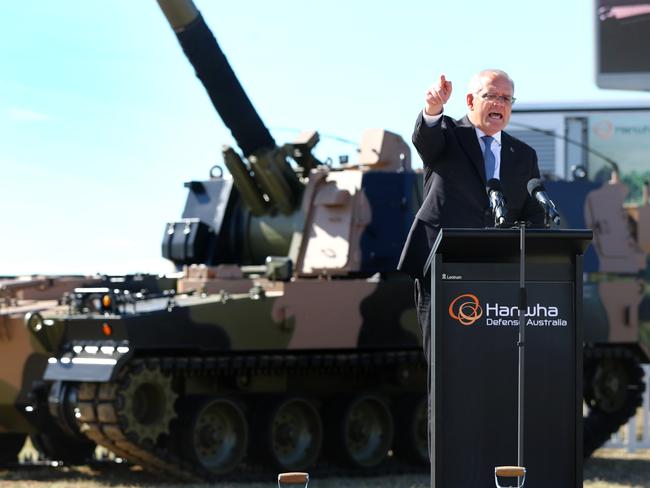
Josh Frydenberg went hard on economic management, saying Albanese never held a Treasury portfolio and had supported “higher taxes”, including proposals for a carbon tax, the mining tax and an inheritance tax when he was part of a group known as the “Bolsheviks”.
Albanese could see what was coming and responded with claims the Treasurer was lying, Morrison was ranting and Peter Dutton, as Leader of the House, was “attempting personal character assassination”. He was right.
After too long in a political sense the Coalition had realised what damage had been done and embarked on scare campaigns on tax and spending and a belated negative colouring of Albanese as a hard left leader “marching into the arms of the Greens”.
The political blow torch didn’t have an immediate impact. The trends in Newspoll continued against the Coalition and Morrison personally and for Labor and Albanese – who for the first time equalled Morrison as preferred prime minister.
But the check in Labor’s momentum over the death of senator Kimberley Kitching and claims she had been bullied by the party’s “mean girls”, coupled with a modest budget that helped counter the rising cost of living and long-term deficits as well as the proximity of the election, has now put the focus on Albanese as alternative prime minister.
Here is the danger for Labor: a combination of a refusal to offer any solid policies and broad budgetary or economic alternative and a lack of voter recognition for Albanese – despite a parliamentary career of more than 20 years, including a stint as deputy prime minister – could provide the same drag on Labor during the election campaign that has pulled down the Coalition vote.
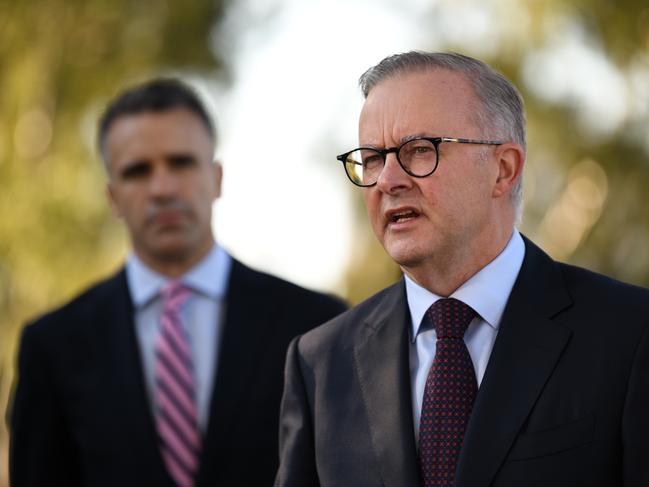
In the latest Newspoll survey, Labor and the Coalition are both below the necessary 40 per cent primary vote to be elected in their own right – 38 per cent and 36 per cent, respectively – and about one in three Australians is indicating a vote for a minor party, independent, “others” or is uncommitted.
It’s only one poll and may not indicate a trend, but it’s a change at precisely the wrong time for Labor and Albanese.
Campaigning in a marginal NSW central coast seat this week, Morrison reinforced the Coalition’s message: “My opponent in this election, Anthony Albanese, is a blank page. He’s not a small target, he is a complete blank page,” he said.
“And at a time of great uncertainty, considerable uncertainty, not just in the economy but also in terms of national security, a blank page is no answer to the problems that Australians face. You’ve seen our plan, you’ve seen it detailed in budgets, you’ve seen it detailed year after year and the forward plans about how we will continue to be strong.
“Anthony Albanese has been ducking the questions for three years, and in this election campaign he’ll have to answer them.”
On the campaign trail in Adelaide this week, Albanese was forced to defend the notion that people didn’t know who he was or what he stood for – a dangerous position that has damaged and defeated previous Labor leaders who ran campaigns bereft of policy and personally attacking their opponent.
“People know who I am. People here in the square. When I’ve travelled around, I was in WA for the last three days, I was in Queensland before then – people know who I am. People know that Labor has put forward a constructive alternative and will continue to do so,” Albanese said. “We’ve made it very clear what our plan is for the nation going forward.
“And it’s one of growth. It’s one of opportunity. It’s one of Labor’s agenda at its best. It’s making sure that we don’t leave people behind, that we look after people who are disadvantaged. But at the same time, we create opportunity.”
In his budget reply speech, Albanese maintained a small-target policy and also continued to fill in his personal story for voters who might not know who he was.
But even Labor’s budget response, waving through the cost-of-living relief payments and petrol excise cut, ran into more scrutiny than Labor has been used to during the past three years.
There have been tough questions about the uncosted proposal for a Labor government to fund a pay rise for aged-care workers of up to 25 per cent.
As well, the centrepiece $2.5bn promise on aged care to put registered nurses in aged-care centres 24 hours a day disappeared within 48 hours when Labor had to admit under more scrutiny that it might have to be “paused” for the simple lack of nurses.
Albanese is suddenly under scrutiny and the free run he has had against Morrison is dramatically changing as the character assessments start to equalise during an election campaign.
Whoever wins will be judged a strategic genius for the competing strategies of being a small target or optimistic and positive as long as possible before going negative.


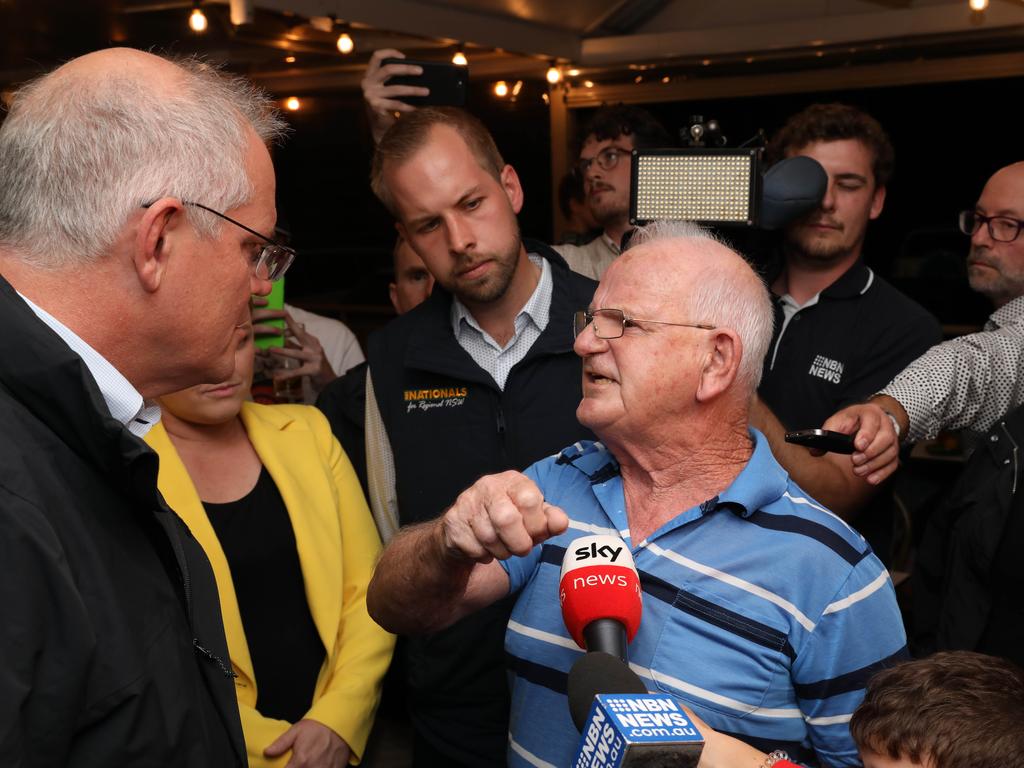

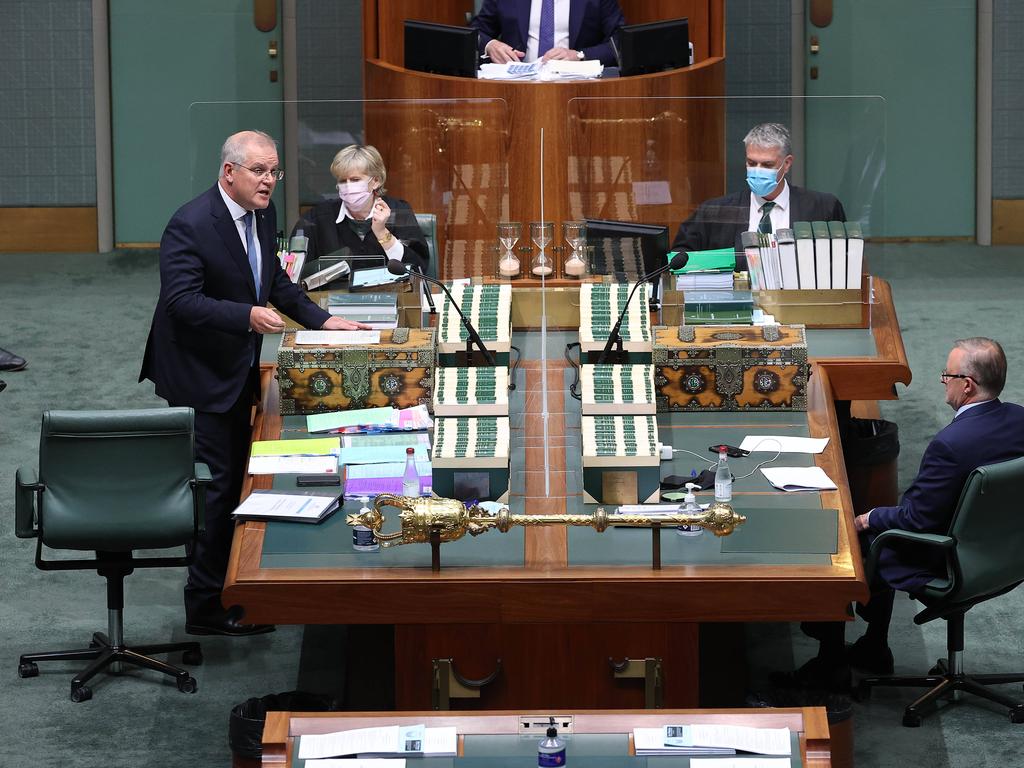
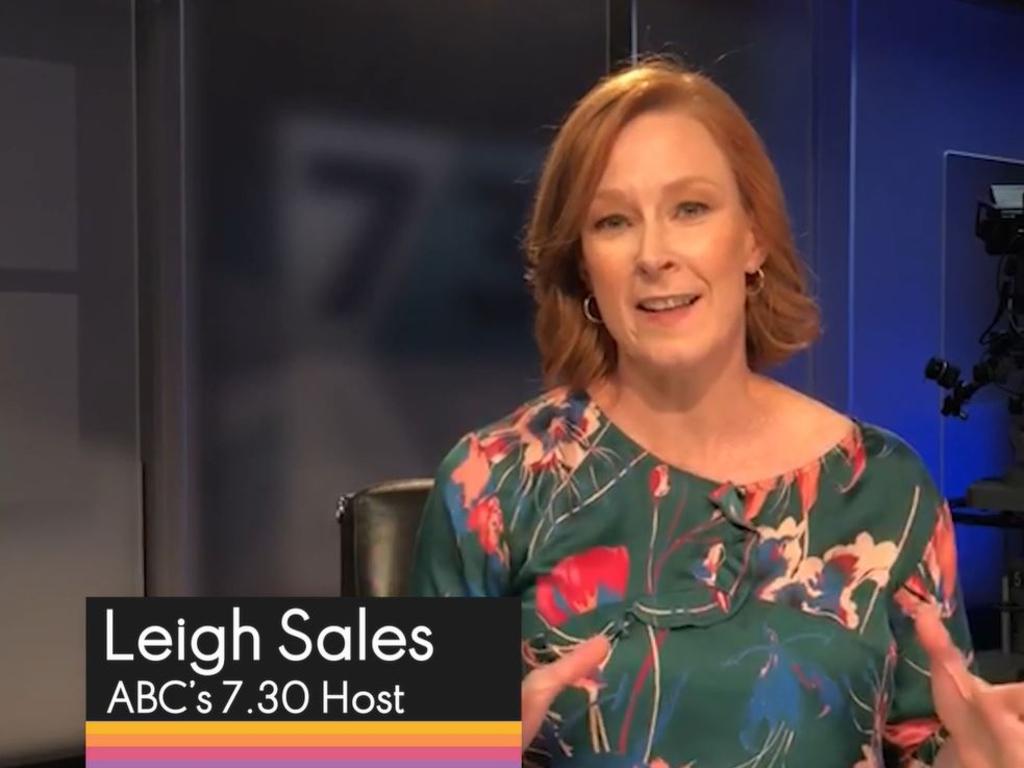
“Too little, too late” has been a devastatingly negative Labor line of attack against Scott Morrison for the past two years of bushfires, floods, economic recession and the Covid-19 pandemic – to such an extent that the Prime Minister’s standing and character now are the greatest drags on the Coalition’s vote going into the federal election.